The Protestant Reformation has some strange old bones in the closet. Recessed genes that keep popping up in odd places. Those nasty margin notes of Martin Luther, that sinister side while mocking, and justly the clerical pomp and obedience without respect lead to a good public image while hiding blatantly anti-semitic seeds; its an unwanted dilemma in that for many Christians, Luther is the genesis of Protestant Christianity and a spirit of Jewish hatred that won’t extinguish itself and whose origins are murky. In nailing his ninety-five theses of indulgences to the door of the church at Wittenberg in 1517, that beginning of religious humanism, what Schiller would call the disenchantment of the world. And perhaps the first faint breeze of nihilism could be added as well. The soft beginnings of eliminationist theory…
By the mid-16th century, the old certainties, such as the hierarchies of the heavens and earth seemed to implode.Despite that Luther was less of a humanist than many Church dignitaries, his critique of the church has merit, justification, but they would also entrench in the Church the uncompromising men, the monkish bigots whom humanists like Erasmus had worked so hard to displace. The end was this radical transformation of the world that arose after the Protestant Reformation; from a departure point of a divinely appointed cosmos brimming with numinous and dynamic presences to a more mundane and materialistic world: the energy of the marketplace of commerce, consumption and rampant individualism that accompanied the end of feudalism, and the burgeoning of bourgeois values.
Luther’s opinions, while mainly confined to Germany, were distasteful. The nationalism, the fanaticism, intolerance, and above all belief in the essential helplessness of man under divine will; little room for the belief in the goodness of the individual. To thinkers like Erasmus, Luther’s belief in predestination was no better than the belief in original sin, and had the basis for eliminationist rhetoric.
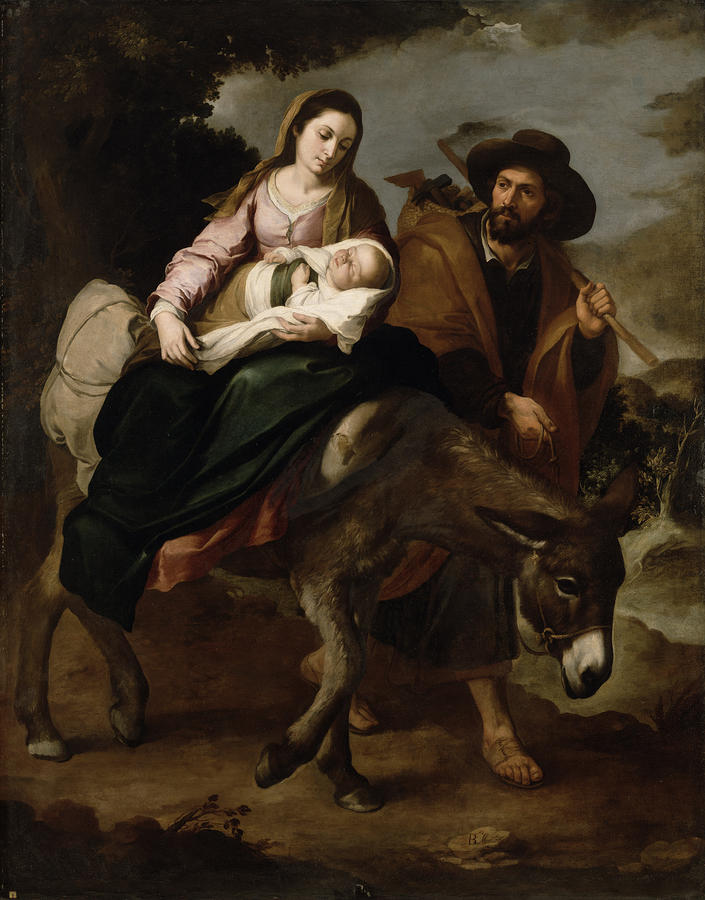
—-The Flight into Egypt, c.1647/50 (oil on canvas) by Murillo, Bartolome Esteban (1618-82)—Read More:http://fineartamerica.com/featured/the-flight-into-egypt-bartolome-esteban-murillo.html
( see link at end) …Although Luther did not invent anti-Jewishness, he promoted it to a level never before seen in Europe. Luther bore the influence of his upbringing and from anti-Jewish theologians such as Lyra, Burgensis, (and John Chrysostom, before them). But Luther’s 1543 book, “On the Jews and their lies” took Jewish hatred to a new level when he proposed to set fire to their synagogues and schools, to take away their homes, forbade them to pray or teach, or even to utter God’s name. Luther wanted to “be rid of them” and requested that the government and ministers deal with the problem. He requested pastors and preachers to follow his example of issuing warnings against the Jews. He goes so far as to claim that “We are at fault in not slaying them” for avenging the death of Jesus Christ. …
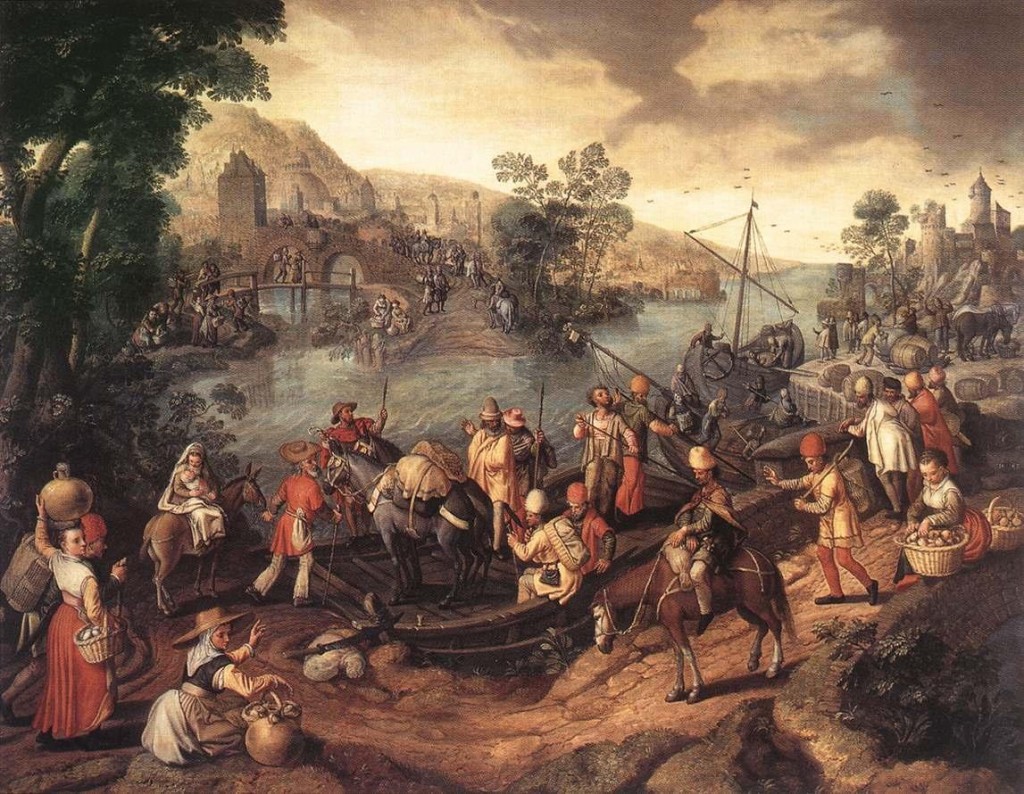
Joachim Beucklaer. The Flight Into Egypt. Read More:http://www.chinaoilpaintinggallery.com/j-joachim-beuckelaer-c-58_76_983/the-flight-into-egypt-p-24101
….The United Church of Canada has released the 26 page report of its Working Group on Israel/Palestine Policy, which the church will consider introducing as policy when the denomination’s 41st General Council convenes in Ottawa August 11-18. The Working Group indicates that its recommendations were put forth in search of truth, justice and reconciliation when in fact it does little or nothing of the sort. It refers to Israel as the “thief,” the “occupier,” and the “oppressor,” and compares Israeli policies to those of South Africa under apartheid, and more shockingly to Sudan, despite the fact that people from Africa risk their lives to get to Israel to escape the Islamist apartheid rampant throughout African countries such as Sudan, South Sudan and Nigeria, to name but a few.
While acknowledging Israel’s right to exist, this biased and scathing report against Israel calls for “Christian economic action” against it,…Read More:http://www.gatestoneinstitute.org/3126/canada-united-church-israel
The United Church of Canada has gone on the offensive after being singled out by a Conservative senator for stepping out of its charitable status to take on overt political causes….
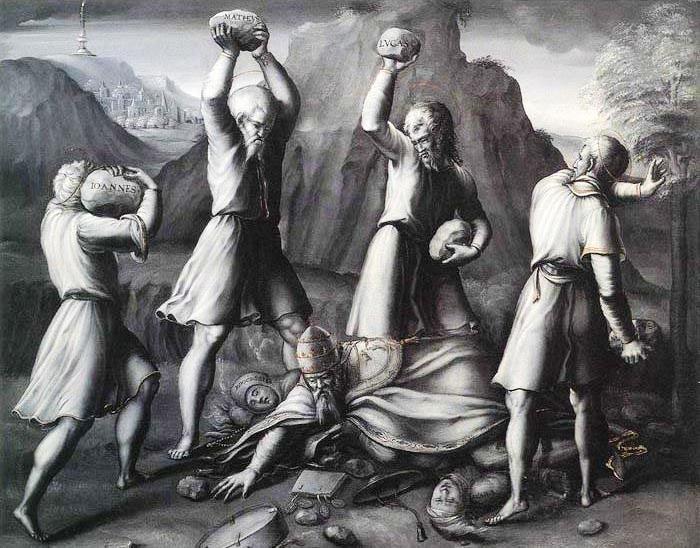
Rambam:Jesus caused Israel to be killed by the sword, their remnants to be dispersed and humiliated, the Torah to be switched for something else, and most of the world to worship a G-d other than the G-d of Israel! But – the thoughts of G-d cannot be fathomed by human minds. For our ways are not like His, and our thoughts are not like His. All these activities of Jesus the Christian, and the Ishmaelite who came after him, are all for the purpose of paving the way for the true King Messiah, and preparing the entire world to worship G-d together, as is written (Tzefaniah 3,9): “For then I will convert the nations to a pure language, that they may all call in the name of G-d and serve Hi
gether.” Read More:http://www.jcrelations.net/From_Maimonides.2399.0.html?&L=3During an interview about federal measures to restrict political work by charities, Senator Nicole Eaton told CBC Radio’s As It Happens that churches in particular should spend their time giving succor, and not delving into politics.
“Why is the United Church involved with a boycott of Israel? Is that helping to educate the poor? Is it giving people a hand up? I think it’s political work. It’s pretty strange that a church is [involved] in boycotting a country.”…
…Ms. Eaton’s brief comments raise fundamental questions about what actions taken by churches are political and what are charitable, and prompted the United Church to issue a press release titled: ‘‘For Churches, Being Political is About Being Faithful.’’
“We have churchy language that says one of our purposes is to ‘defend human rights and dignity for all,’ ” said Erik Mathiesen, the chief financial officer of the United Church. “Is that political or not? If we urge companies to respect human rights and the environment, is that political?…

—John Paul received Arafat for the first time in 1982 amid protests from Israel and the worldwide Jewish community. Since that Vatican audience, the two men have met another 10 times.
The pope made his long-sought pilgrimage to the Holy Land in 2000, just a few months before the Palestinian uprising that followed the breakdown in the Camp David peace talks.
In a stop in Bethlehem, the pope kissed a golden bowl of Palestinian soil – one of several gestures the Palestinians saw as recognition of their dreams for statehood. As Arafat looked on, the pontiff proclaimed Palestinians’ “natural right to a homeland.”
Read More:http://www.indybay.org/newsitems/2004/11/13/17050661.php
“The regulations are as clear as mud but we do the best with the most opaque rules you can imagine,” he said.
Mardi Tindal, head of the United Church, said the suggestion that churches should not be involved in political activity or help influence public policy is an “extremist view.”…
…But Ms. Tindal noted that no boycott of Israel has taken place, although a proposal to boycott only those goods coming out of the occupied territories will be voted on in August. But regardless, it is an action the church has every right to explore based on its reading of the Gospels, she said.
“The Middle East question is an area of sacred importance to us as a church,” said Andrew Love, an Ottawa-area United Church minister who has criticized his own denomination over the Israeli question….
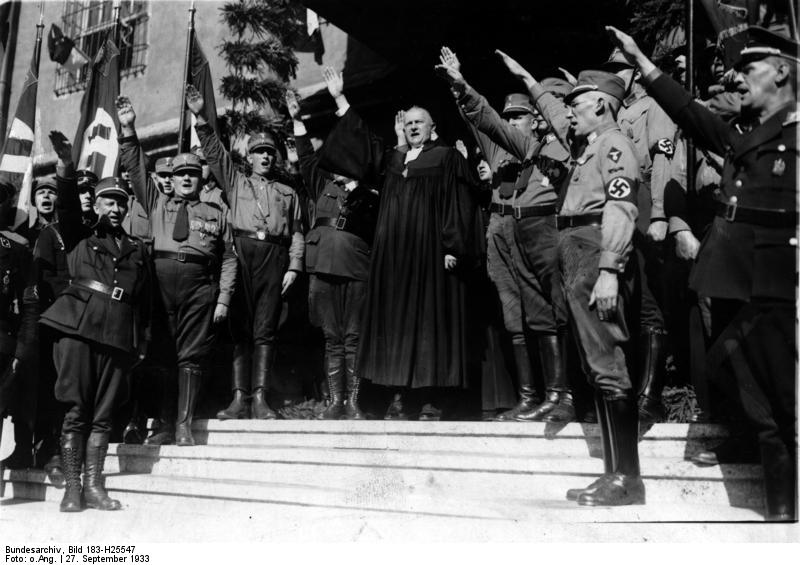
—It is immediately obvious that majority Catholic areas didn’t vote for Hitler whereas majority Protestant areas did.
Yet Protestant liars persist with the outright fib that Bavaria voted for Hitler. The truth is the exact opposite: Catholic Bavaria rejected Hitler, as did the Catholic Rhineland, and the Catholic parts of Westphalia and Silesia.
Remarkably, it is a nearly exact fit.
The Protestant areas, by contrast, are exactly the areas where the Nazis gained their votes. The only dot of white in the Nazi-voting Protestant areas is Berlin, for the reasons already mentioned.
It could hardly be clearer.
Face it, “Reverend”, your German co-religionists supported Hitler and the Nazis, and, alas, some did so ardently.
One such example was the Protestant Reich Bishop Ludwig Muller who is seen here giving the Nazi salute, surrounded by Nazi thugs. Read More:http://romanchristendom.blogspot.ca/2010_01_01_archive.html
“It’s also a question of interfaith relationships and therefore imperative as Christians that we actively look at those dynamics. So my objection is not that we are being too political but that we will ruin our relationship with the Jewish community in Canada and we’re being selective in who we call out for criticism.”…Read More:http://life.nationalpost.com/2012/06/21/faith-and-politics-not-separate-united-church-tells-conservative-senator/

—Martin Luther in the garb of a Roman Catholic priest of the 16th Century. He repudiated the Catholic Church and started the Protestant Revolt. In later life, he published violently anti-Semitic works which, later still, were quoted, approvingly, by the Nazis. Most Protestants, however, now repudiate Luther’s anti-Semitism.—Read More:http://romanchristendom.blogspot.ca/2010_01_01_archive.html
ADDENDUM:
(see link at end)…If they agreed with many of the political aims of the Nazi regime, many Protestant clergy and leaders nevertheless found the German Christian agenda to be ideologically tainted and anti-Christian. A new movement emerged, led by prominent preachers and theologians like Martin Niemoeller and Karl Barth, that opposed the German Christians: the Confessing Church. Founded on the principle that a truly Christian church would not succumb to the demands of political ideology, the Confessing Church argued that the principles of belief were to be found in the scriptures, not in Nazi laws, and that the head of the Church was Christ, not a political Fuhrer. These convictions placed the Confessing Church on a collision course not only with the German Christians, but with the Nazi dictatorship itself.
Nazi authorities responded by harassing local Confessing congregations and arresting their more outspoken pastors. Karl Barth, the Swiss theologian who wrote the Confessing Church’s founding faith statement, the Barmen Declaration of Faith, lost his professorship in Bonn and returned to Switzerland in 1935 after refusing to take a loyalty oath. Martin Niemoeller, the most prominent Confessing pastor in Germany, would ultimately spend seven years in Nazi prisons and concentration camps.
Under such pressures, many argued that the Protestant Church in general should confine its witness purely to church affairs and refrain from political criticism of the Nazi regime. Even the Confessing Church, despite its courageous beginnings, became more intimidated by Nazi authorities with each passing year. It was divided between moderates who sought compromise with the Nazi regime and radicals who felt called to political opposition. While some Confessing Christians offered resistance against the regime and attempted to rescue its victims, most Protestants sought only to maintain an “apolitical” church, free of Nazi influences – not acknowledging that, in Nazi Germany, such neutrality inevitably meant silence about Nazi injustice and terror.Read More:http://www.bonhoeffer.com/bak1.htm
a


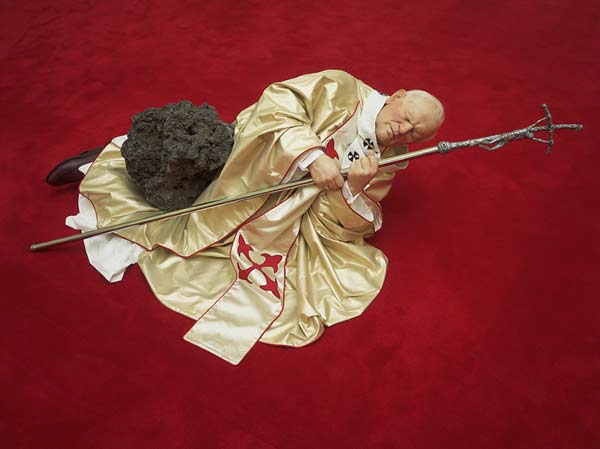



 COMMENTS
COMMENTS